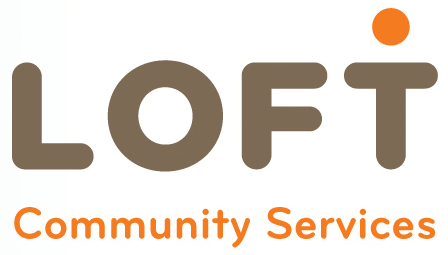Community-based Complex Case Management

LOFT Community Services is a Toronto-based community agency that serves youth, adults and seniors with complex challenges, including mental health issues, homelessness and addictions. LOFT partnered with Ryerson University in order to solve the gnarly problem of meeting complex mental health needs on campus. CICMH chatted with Darlene Coppens from LOFT Community Services about the partnership.
CICMH: So what is the project about?
Darlene: It’s called Complex Case Management. It’s with LOFT Community Services and Ryerson. It’s around providing services more specifically on case management to students at Ryerson who are presenting in the Health and Wellness office with complex needs. It fits well into LOFT’s philosophy about serving those with the most complex needs in the city and providing unwavering support to them. It began as a pilot in September 2016 to explore whether we could filter students with high levels of need to community agencies.
CICMH: How does that work out on a day-to-day basis?
Darlene: Ryerson would identify those students – they’re on the forefront of making those referrals over. Once they’ve identified a student that they’ve determined to have more complex challenges or needs, they would call us with a one-page information sheet about the client. We then connect them with the student within 24 hours.
CICMH: How did all of this start out?
Darlene: LOFT went into a partnership with three different postsecondary schools when the MHIF was provided. It was with OCAD U, Ryerson and George Brown. We were providing on campus substance use groups and case management for students. The schools became very aware of our services and what we could provide. The director at the time approached me one day and said that she wished there was a service that could capture students with complex needs. She was interested in what exactly community work could provide, and we worked out how LOFT could meet these needs. So that’s when we began the pilot. The pilot went really well, so we extended it twice – until 2018. Through the work we’ve done, and the reports that have come out, it’s proven to be a very valuable service for students and the university staff. The other benefit is also that if the student is no longer in school, I can transfer them to another case worker to continue their care and not lose contact with the student. Right now we’re at 97% of students with complex needs still attending school.
CICMH: What have been some of the challenges encountered while getting this up and running?
Darlene: I think it would be the same as any other project. Initially it was determining referral process streams and figuring out workflow. We don’t really have that problem anymore. Aside from that, there’s not much. I suppose it’s a challenge in that we only have one case worker to however many students, so although we haven’t encountered this yet, there might be a bottleneck in the future.
CICMH: We mentioned complex needs a number of times. What are the common cases that you see coming through?
Darlene: Mental health, substance use, physical health issues, lack of housing, etc. So when you put three or four of those together, things can get pretty intense for students. It’s usually those presenting with four comorbidities or more that we determine as ‘complex’.
CICMH: What volume of cases do you usually handle on average?
Because it’s a complex case service, the amount of people that we serve is a lot lower. In our last reporting period we had served 25-30 students in that year. We have one case works who is assigned to that each student as they come in.
CICMH: How does the school and LOFT communicate with regards to the student?
Darlene: There’s a few different avenues. One is what we call a ‘shared client’. It means that a client will still continue to receive counselling services from one of the campus counselors, but also receive our case management. We have a consent form that is signed between the two parties immediately upon referral so that everything is open. Then on our end, we complete this with a CPP, which is a Coordinated Care Plan. That plan would involve all parties in the young person’s life and makes sure that everyone is integrated in the plan. Then depending on the student, sometimes there are case conferences with the case worker and the counselor at Ryerson. There might be regular phone calls, advocacy, etc.
Then there is another stream for those that aren’t receiving counseling – only LOFT case management. They get filtered through and sign an agreement stating that LOFT would be the forefront of their care. While working with the student, if we feel that there is a need to bring in someone from Ryerson, we would definitely do that – whether it’s a teacher or counselor.
CICMH: It’s sounds like there’s a lot of back-and-forth and open channels of communication. Oftentimes it’s difficult to ask students to leave the campus to seek out care in the community. This sounds more holistic.
Darlene: Yes, we’ll go there to meet the student in whichever way works out with them. If they’re reluctant to leave the campus, we’ll go to them. That’s one of the beauties of this service – the flexibility to meet them on their campus. We also have an agreement that if we can’t connect with the student, we let the school know so that the student doesn’t get lost. Whether we’ve managed to connect with the student or not, Ryerson is kept informed so that they’ll know if they need to follow up with the student.
CICMH: Earlier, you mentioned the two different streams of care. What determines whether the student goes through one or the other?
Darlene: It depends on what they’re presenting with. Some examples would be if right from their first intake session, they can identify that the student will need far more than six sessions of therapy, so they would be referred to us immediately. Then we’d just begin straight away. For the shared client stream, it is geared more toward youth that had already been working with counseling services and through those sessions uncovered other things. Then they recognise that perhaps an additional service is needed that the school doesn’t have the capacity to provide. Perhaps the student needs court support, or regular visits to the hospital – this is where case management would help.
CICMH: What sort of resources are available at LOFT? What does the team who is supporting the student look like?
Darlene: We have several specialized groups that we offer. One of the biggest ones that the university really uses is our DBT skills group. We have transitional housing, a psychiatrist that comes on site, a therapist and lots of other community support work.
CICMH: Could you talk a bit about some of the mental health outcomes of students who participated in the program or other success stories?
Darlene: Sure! We do have targets that we need to meet in the program, and one of those is our satisfaction rates. That’s been extremely high – for client services it’s 95%. It was conducted via an anonymous survey. The major themes around those were that students appreciated how quick it was, and that we met with them once a week for at least an hour – which is pretty frequent and helpful for the students to reach all the things that they need. The students also appreciated the fact that we are a ‘separate’ agency, because they felt safer and there was less stigma around friends and professors finding out.
In terms of health outcomes, one of the things we focus on is having students write out what their goals are at the start. These were things like reducing stress, finding a psychiatrist, etc. Over 70% met at least 2 of their goals. 3 students graduated from university and also no longer needed our services. 80% of students remained enrolled in their university programs, so retention rates are high.
And with the university staff, we have a good connection with them and they really appreciate the program. The counselors at Ryerson are very satisfied. The program helps to take the complex cases off their caseload so that they have more resources to support other students. It’s a good partnership.
At CICMH, we’d like to thank Darlene Coppens for her time.
Browse Spotlight Interviews
November 7, 2017
Peer Support Groups for Suicide Intervention
February 1, 2018


